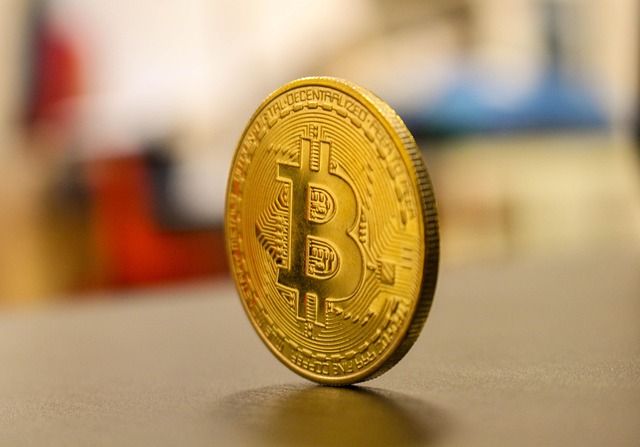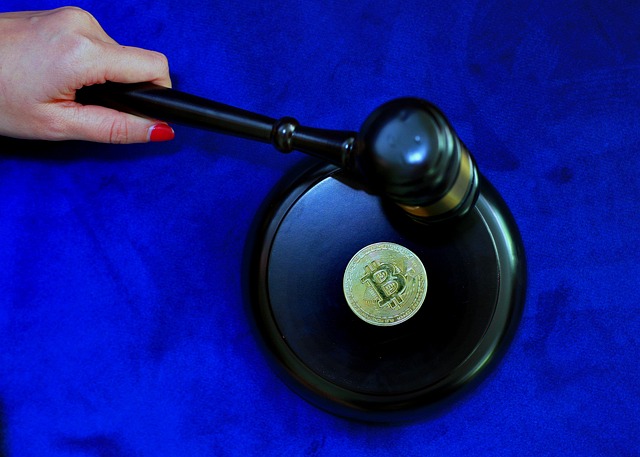Is Crypto Trading Halal? Mufti Taqi Usmani’s Perspective in 2025
Author: Jameson Richman Expert
Published On: 2025-10-17
Prepared by Jameson Richman and our team of experts with over a decade of experience in cryptocurrency and digital asset analysis. Learn more about us.
In the rapidly evolving landscape of digital finance, cryptocurrencies have emerged as a transformative force, redefining notions of wealth, investment, and transactional methods. As blockchain technology matures and mainstream financial institutions integrate digital assets, the intersection of crypto trading and Islamic finance becomes an increasingly vital subject for scholars, investors, and practitioners. For the global Muslim community eager to participate in crypto markets, understanding the Islamic legal stance—particularly that of esteemed scholars like Mufti Taqi Usmani—is essential for ensuring compliance with Shariah principles. This comprehensive analysis explores Mufti Taqi Usmani’s nuanced viewpoints in 2025, delving into the core Islamic principles relevant to digital assets, clarifying criteria for Shariah legitimacy, and providing detailed guidelines for Muslims engaging in crypto trading responsibly and ethically.

Core Islamic Principles Relevant to Cryptocurrency and Their Application
Cryptocurrencies such as Bitcoin, Ethereum, and a multitude of altcoins operate on decentralized blockchain networks, characterized by features like transparency, security, and immutability. These core features resonate with fundamental Islamic values, including justice (adl), transparency (bayyan), and ethical conduct (akhlaq). However, the permissibility of cryptocurrencies under Shariah law hinges on evaluating several critical issues:
1. Asset Backing, Economic Utility, and Intrinsic Value
Unlike fiat currencies issued or backed by governments or tangible assets, most cryptocurrencies lack physical backing. Their valuation is predominantly driven by speculative trading, market sentiment, and supply-demand mechanics. Islamic finance emphasizes assets with tangible economic utility and real backing—such as commodities, real estate, or assets that generate productive value. Cryptocurrencies primarily serve as speculative instruments or digital tokens; thus, their classification as lawful mediums of exchange depends on their utility and backing. Cryptocurrencies used for legitimate economic functions—like facilitating remittances or smart contracts—are more likely to be deemed permissible.
2. Ownership Rights and Transaction Transparency
Blockchain’s transparent ledger provides comprehensive transaction records, which align with Islamic requirements for clarity and transparency. Nonetheless, issues such as the existence of counterfeit tokens, fake cryptocurrencies, and transactions involving illicit entities challenge ownership clarity. For a cryptocurrency to be considered permissible, ownership rights must be well-defined, legally recognized, and verifiable. Clear documentation and authenticating the legitimacy of tokens are prerequisites to ensuring compliance with Islamic principles.
3. Excessive Gharar (Uncertainty) and Market Instability
Market volatility in crypto assets is notorious, with frequent, sharp price fluctuations that can resemble gambling or betting (qimar). Islam strictly forbids gharar—excessive ambiguity or uncertainty—in economic transactions. Trading in assets with unpredictable outcomes and high speculation diminishes the halal status of such activities. Transactions should involve assets with understandable, predictable characteristics, and traders must avoid overly speculative practices that resemble gambling.
4. Ethical Use and Avoidance of Unlawful Activities
The legitimacy of cryptocurrency activities also depends on their application. Cryptos used for lawful purposes—such as remittances, charitable donations, or smart contracts—align more closely with Islamic ethics. Conversely, involvement in transactions linked to money laundering, terrorism financing, or other unlawful activities renders such crypto activities harām. Ethical considerations and social responsibility are integral to Shariah compliance.
In essence, digital assets recognized as serving real economic needs, maintaining transparency, and adhering to Islamic ethical standards can be viewed as permissible. The context of their use, transaction protocols, and compliance measures determine their classification within Islamic law.
Mufti Taqi Usmani’s Perspective on Cryptocurrency in 2025
Mufti Taqi Usmani, a distinguished authority in Islamic jurisprudence and contemporary Islamic finance, approaches the subject of cryptocurrencies with cautious scholarly rigor. His assessments focus on evaluating each digital asset and its associated transactions against detailed Shariah criteria. In 2025, his primary stance can be summarized as follows:
Key Aspects of Mufti Taqi Usmani’s Viewpoint:
- Legitimacy Tied to Purpose and Backing: Cryptocurrencies that are backed by tangible assets, or used for lawful economic activities—such as utility tokens supporting real services—are more likely to be considered permissible. Conversely, cryptocurrencies driven solely by speculation, without underlying utility, risk violating prohibitions against gharar and maysir (gambling).
- Transaction Transparency and Clear Ownership Rights: Mufti Taqi Usmani emphasizes that transactions must be transparent, with ownership rights well-documented and verifiable through blockchain records. Any ambiguity, deception, or involvement in illicit dealings disqualifies such transactions from permissible status.
- Absence of Riba (Interest): All crypto platforms and financial products must avoid interest-based mechanisms. Platforms offering interest on holdings or leverage involving riba are deemed impermissible, as interest is strictly prohibited in Islamic law.
- Restrictions Against Excessive Gharar and Speculation: He underscores that trading should be rooted in real economic activity, with minimal uncertainty. Excessive volatility, frequent speculation, or gambling-like trading diminishes the halal status of such investments.
While Mufti Taqi Usmani has not issued a blanket fatwa declaring all cryptocurrencies haram, he underscores the importance of exercising caution. The focus should be on ensuring that digital currencies are used ethically, transparently, and for legitimate purposes—without becoming tools for deception, unlawful activity, or reckless speculation. His overarching advice advocates prudence, continuous scholarly consultation, and adherence to Islamic ethical standards in digital finance.
Practical, Shariah-Compliant Guidelines for Cryptocurrency Trading in 2025
Muslims interested in participating in crypto markets must do so responsibly, aligning their activities with Islamic principles. The following detailed guidelines, inspired by Mufti Taqi Usmani’s teachings, aim to facilitate halal trading practices:
- Choose Reputable and Shariah-Compliant Exchanges: Opt for cryptocurrency platforms with transparent operations, clear terms, and adherence to Islamic finance principles. Platforms like Binance, BitOasis, or those with explicit Islamic compliance certification—verified by qualified scholars—are preferable. Ensure the platform does not promote interest-based products or high-risk speculative offerings.
- Prioritize Asset-Backed and Utility-Driven Cryptos: Engage mainly in cryptocurrencies linked to real-world assets or that support lawful activities—such as security tokens representing physical assets or utility tokens facilitating legitimate services. Avoid purely speculative tokens with no tangible utility or backing.
- Limit Speculative and Highly Volatile Trading: Refrain from day trading, margin trading, or leveraging that amplifies gharar. Adopt a long-term investment perspective based on thorough fundamental analysis, utility, and economic viability rather than short-term speculation.
- Seek Continuous Islamic Scholarly Guidance: Regularly consult qualified Islamic scholars and Muftis to stay updated on new developments, cryptocurrencies, and financial products. Obtain official fatwas or guidance particularly for emerging assets and complex transactions.
- Implement Ethical Risk Management Strategies: Use prudent risk mitigation tools such as stop-loss orders, diversifying investments, and avoiding overexposure to highly volatile assets. Maintain a balanced, ethical portfolio consistent with Islamic ethics and risk tolerance.

Market Outlook and Challenges Facing Muslim Investors in 2025
The cryptocurrency industry in 2025 is anticipated to continue its growth trajectory, propelled by technological innovations, increased institutional adoption, and integration into traditional financial ecosystems. Notable developments include Decentralized Finance (DeFi), Non-Fungible Tokens (NFTs), and Central Bank Digital Currencies (CBDCs). However, several challenges remain:
- Persistent Market Volatility: Despite growth, crypto prices remain highly volatile, posing risks of gharar and speculative excess.
- Regulatory Divergence and Uncertainty: Governments worldwide are establishing or refining regulations around cryptocurrencies. Some impose strict restrictions, while others develop compliance frameworks that could influence Shariah considerations.
- Proliferation of Interest-Based Products: Many crypto platforms offer interest-bearing accounts or margin trading, which are explicitly forbidden in Islam. Vigilance in selecting compliant products and platforms is crucial.
Engaging with reputable, Islamic-compliant platforms—like some emerging Islamic crypto exchanges—can mitigate risks and ensure adherence to Shariah. Continuous scholarly consultation and due diligence remain vital for ethical participation in this evolving market.
Conclusion: Is Crypto Trading Halal in 2025 According to Mufti Taqi Usmani?
Summing up, the permissibility of cryptocurrency trading in 2025, viewed through the lens of Mufti Taqi Usmani’s scholarship, hinges on strict adherence to Islamic principles. Cryptocurrencies are not automatically harām; their permissibility depends on factors such as purpose, transparency, backing, and compliance with ethical guidelines. Careful selection of assets, platforms, and trading strategies aligned with Islamic ethics can make crypto trading permissible and even beneficial.
Muslim investors should prioritize consulting qualified Islamic scholars, using Shariah-compliant exchanges, and maintaining ethical trading standards. When approached responsibly, digital assets can serve as legitimate tools for economic growth, innovation, and social benefit—while respecting Islamic values and legal rulings.
To stay informed on scholarly insights and market developments, resources such as comprehensive Forex and crypto trading guides and expert analyses like Bitcoin’s long-term outlook in 2040 are invaluable for making informed, ethically sound investment decisions in 2025 and beyond.